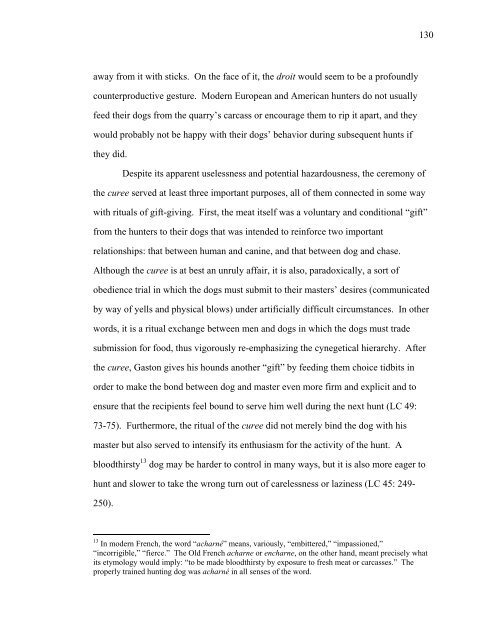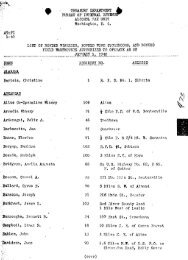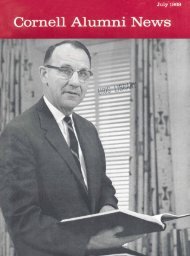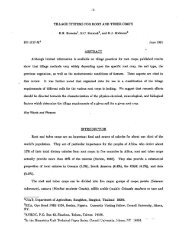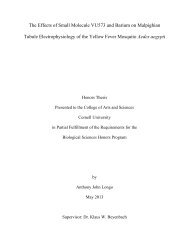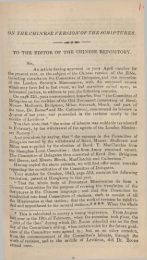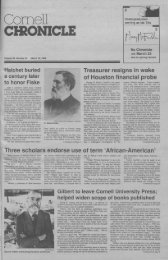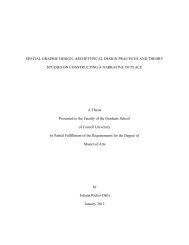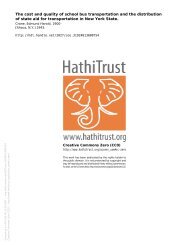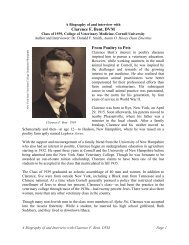Chapter 4 The Gift.pdf - eCommons@Cornell
Chapter 4 The Gift.pdf - eCommons@Cornell
Chapter 4 The Gift.pdf - eCommons@Cornell
You also want an ePaper? Increase the reach of your titles
YUMPU automatically turns print PDFs into web optimized ePapers that Google loves.
away from it with sticks. On the face of it, the droit would seem to be a profoundly<br />
counterproductive gesture. Modern European and American hunters do not usually<br />
feed their dogs from the quarry’s carcass or encourage them to rip it apart, and they<br />
would probably not be happy with their dogs’ behavior during subsequent hunts if<br />
they did.<br />
Despite its apparent uselessness and potential hazardousness, the ceremony of<br />
the curee served at least three important purposes, all of them connected in some way<br />
with rituals of gift-giving. First, the meat itself was a voluntary and conditional “gift”<br />
from the hunters to their dogs that was intended to reinforce two important<br />
relationships: that between human and canine, and that between dog and chase.<br />
Although the curee is at best an unruly affair, it is also, paradoxically, a sort of<br />
obedience trial in which the dogs must submit to their masters’ desires (communicated<br />
by way of yells and physical blows) under artificially difficult circumstances. In other<br />
words, it is a ritual exchange between men and dogs in which the dogs must trade<br />
submission for food, thus vigorously re-emphasizing the cynegetical hierarchy. After<br />
the curee, Gaston gives his hounds another “gift” by feeding them choice tidbits in<br />
order to make the bond between dog and master even more firm and explicit and to<br />
ensure that the recipients feel bound to serve him well during the next hunt (LC 49:<br />
73-75). Furthermore, the ritual of the curee did not merely bind the dog with his<br />
master but also served to intensify its enthusiasm for the activity of the hunt. A<br />
bloodthirsty 13 dog may be harder to control in many ways, but it is also more eager to<br />
hunt and slower to take the wrong turn out of carelessness or laziness (LC 45: 249-<br />
250).<br />
13 In modern French, the word “acharné” means, variously, “embittered,” “impassioned,”<br />
“incorrigible,” “fierce.” <strong>The</strong> Old French acharne or encharne, on the other hand, meant precisely what<br />
its etymology would imply: “to be made bloodthirsty by exposure to fresh meat or carcasses.” <strong>The</strong><br />
properly trained hunting dog was acharné in all senses of the word.<br />
130


